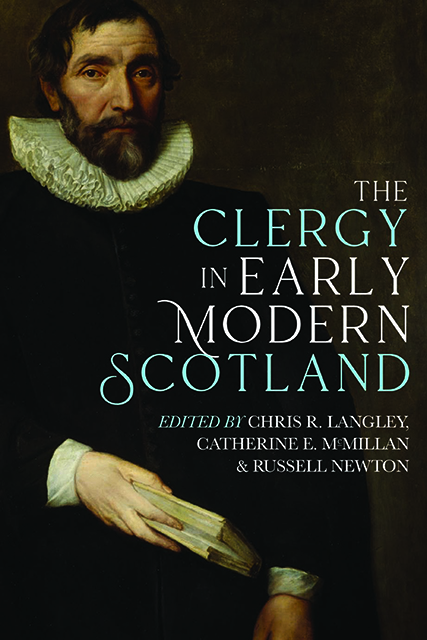3 - The Protestant Clergy and Poor Relief, 1560–1660
Published online by Cambridge University Press: 14 January 2023
Summary
As testified by this volume, historians have developed an increasingly strong awareness of the many complex roles played in society by parish clergy. This chapter explores the clergy’s work in the area of poor relief and charity, a part of the Scottish Reformed Church’s mission which has only recently begun to receive significant attention. It is now suggested that the poor relief provided by the Church – and in particular the parochial kirk session – was more significant, responsive, and sensitive than had been suggested by the traditional emphasis on the failure to implement poor laws on a widespread basis. While the overall effectiveness of kirk session poor relief may continue to be debated, what is certain is that the kirk session was by far the most important institutional provider of poor relief in early modern Scotland. And by the same token, the poor relief work undertaken by kirk sessions was an important element in the processes by which they integrated themselves within Scottish communities, providing a range of ‘social services’ in addition to the more familiar and punitive imposition of discipline and punishment.
However, the specific role of the minister within these processes of poor relief in Scotland has remained much more obscure. It should not be assumed that this is because clerics, with their essential function defined by preaching and the sacraments, were not particularly significant to poor relief. Although much emphasis is often placed on early modern processes of secularisation and increasing lay control over poor relief, not least through the English poor laws, scholars are starting to develop a deeper understanding of the role of the clergy in poor relief, as part of the return of an emphasis on religious imperatives for relief. Most significantly, Marjorie McIntosh’s work on the English town of Hadleigh points towards the potential for individual preachers and their values to shape the development of local welfare systems. Equally, Scottish historians have developed a sharper sense of important and distinctive ministerial contributions to other key elements of the Reformed Church’s parochial agenda, especially moral discipline. However poor relief has not yet been considered in its own right as part of this clerical agenda.
- Type
- Chapter
- Information
- The Clergy in Early Modern Scotland , pp. 52 - 69Publisher: Boydell & BrewerPrint publication year: 2021



